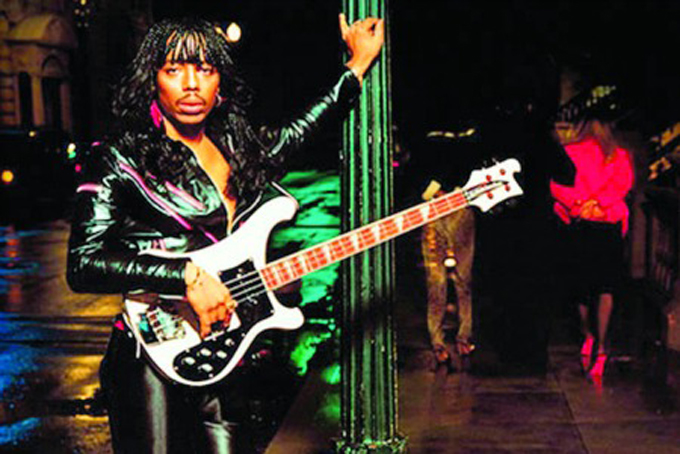
One of the most monumental achievements in the history of show business — and indeed the world — was the creation of Motown Record Corporation.
Detroit was already on the map for its manufacturing of automobiles, but thanks to the company Berry Gordy founded in 1959, with encouragement from Smokey Robinson and perhaps others, there was something else Detroit was celebrated for. In fact, not long after that, it became commonplace to refer to Detroit as “Motown.” It still is.
Now, before going any further, it should be noted that the historic “Motown 25: Yesterday, Today, Forever” television special, presented as a celebration of Motown’s 25th anniversary, took place in 1983, which was actually the 24th anniversary.
Perhaps Motown and NBC were so hyped that they decided to make the big move right then, assuming that not many viewers would “do the math.”
In any event, the widely viewed special made it clear that most of the things that made Motown the institution it was — and still is, even though today Motown is not a “company,” just a “label” owned by a conglomerate (currently Universal).
“Forever” was the right word to use in naming the Emmy Award-winning special because the music created during that golden era — roughly 1960 to 1970 — is timeless. When you hear a Motown classic, it is not “an old record.” Rather, it is “a Motown song.” There is a big difference.
The hits — and the songs that were great, but didn’t for whatever reason become big hits — are mindblowing. And what an amazing roster. The Supremes. The Temptations. Marvin Gaye. Smokey Robinson. Martha & the Vandellas. Diana Ross. The Jackson 5. The Miracles. Mary Wells. Stevie Wonder. The Marvelettes. The Four Tops. Michael Jackson. Gladys Knight & the Pips.
The long list also includes Jr. Walker & the All Stars, the Contours, Edwin Starr, the Velvelettes, Rare Earth, the Spinners, the Elgins, Tammi Terrell, the Isley Brothers, Syreeta, the Originals, Brenda Holloway, Kim Weston, Carolyn Crawford, Jimmy Ruffin, Shorty Long, the Monitors and too many others to list here.
DETROIT WAS in Motown’s blood. It was the company’s heart and soul. Where the spirit emanated. Where the singers came from. Where the musicians came from. Where the songwriters came from. Where the producers came from. Where the arrangers came from. Where the choreographers and other creative types came from. All of whom were essential to the operation.
Smokey Robinson once said, “Motown is spiritual, and it came from the people who made it happen.”
In some ways it is understandable why Motown packed up and moved to Los Angeles in 1972. For one thing, Berry Gordy wanted to get into moviemaking, and he is to be admired for expanding his and the company’s horizons.
But Detroit was stunned and disappointed by the unexpected new development.
The transition had been a couple of years in the making even though most of the general public and the media were not aware of it.
With change oftentimes comes a certain amount of pain.
So many were left behind with no advance warning, including the Andantes, who sang background on hundreds of Motown recordings. The ladies reported for work as usual and received the relocation information via a note on the door.
Martha Reeves phoned the company on a business matter (by this time the company had moved from West Grand Boulevard to Woodward Avenue) and was told by the operator that Motown had moved to California.
Plus there were many rank-and-file employees who suddenly found themselves out of work, as well as higher ranking business figures.
And there was the Funk Brothers, some of whom made the move to Los Angeles.
Gordy said that even though Motown had moved, “the same feelings went into the music — the love, the honesty, the soul and the family way of doing things.”
IT MUST BE noted that Motown initially enjoyed a lot of success after the move to Los Angeles — megastar Lionel Richie, Rick James (the king of what he called “punk funk”), the family group DeBarge, the Commodores, Switch, Teena Marie, Thelma Houston, El DeBarge, Boyz II Men, the Mary Jane Girls, the Boys and Vanity among them.
That was in addition to artists who opted to stay with Motown, such as Stevie Wonder, who is the only artist who has been with Motown for the entirety of his career, Smokey Robinson, the Temptations, the new Supremes with Jean Terrell as lead singer, the restructured Miracles with Billy Griffin up front (“Love Machine” was huge) and former Temptation Eddie Kendricks.
But after a while, it was clear that the uprooted Motown was no longer the force it had been.
After Motown was sold in 1988 — Berry Gordy said he had no choice because the industry had changed and Motown couldn’t compete with the mega-corporations — there was a series of new presidents, including Jheryl Busby and Andre Harrell, but none had the acumen and understanding of the Motown legacy that Berry Gordy had.
And he was savvy enough to retain ownership of the publishing rights of Motown’s vast and lucrative catalog.
The Los Angeles move notwithstanding, Motown will always be associated with Detroit. Indeed, the day after “Motown 25: Yesterday, Today, Forever” aired, Motown’s Detroit office, which was still in operation and evolving fully into the Motown Museum, was deluged with calls.
Some wanted to say congratulations. Others wanted to share memories. Many wanted to do both. The Los Angeles headquarters received only a few calls.
Detroit is undergoing a transformation. It’s painful as we deal with declining neighborhoods and population, bankruptcy, an emergency manager, crime, etc.
However, there are also signs of renewal in many places, and what a joy it would have been if Motown could have been a part of the renaissance.
But nothing can change the fact that Motown will always be a source of great pride for Detroit, and a major part of the city’s identity.